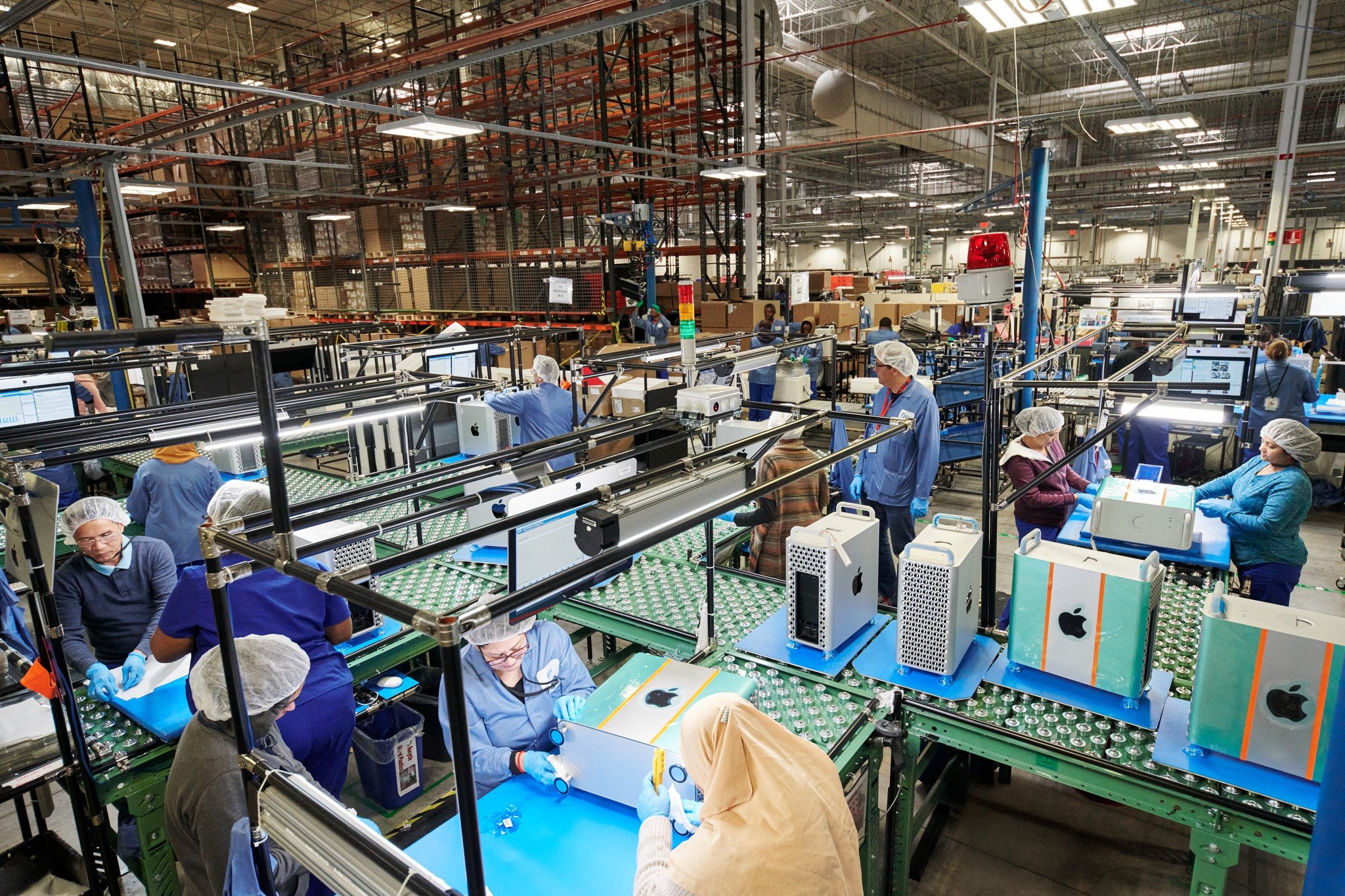Mac shipments drop 20% in Q1 2020 due to supply chain disruptions

What you need to know
- Mac shipments have seen a 20% decline in Q1 of 2020.
- The company shipped 3.2 million Macs, a steep drop from its 4 million units last year.
- The drop is attributed to a lack of inventory due to supply chain disruptions.
The pandemic has led to a lot of people working from home and a surge in demand for computers, webcams, keyboards, mice, and other pieces of technology to support workers in their houses. However, it appears that COVID-19's impact on the supply chain has resulted in the industry not being able to keep up with the new demand for products.
A new report from analytics firm Canalys shows that, while demand for Apple's computers is high, supply chain constraints has led to a 21% decrease in shipments during the first quarter of 2020. Whereas the company had sold over four million Macs in Q1 of last year, units have decreased to 3.2 million in 2020.
"The top vendor rankings remained stable, with Lenovo still leading the PC market with 12.8 million units shipped. HP came second with 11.7 million units, followed by Dell with 10.5 million units. Of the top five, Apple was hit hardest in Q1, as its shipments fell by over 20% to 3.2 million units."
Rushabh Doshi, Research Director at Canalys, says that a constrained supply of Intel chips and closure of Chinese factories led to a shortage in supply for both workers and students looking for computers as businesses and schools closed.
"The PC industry has been boosted by the global COVID-19 lockdown, with products flying off the shelves throughout Q1 ... But PC makers started 2020 with a constrained supply of Intel processors, caused by a botched transition to 10nm nodes. This was exacerbated when factories in China were unable to reopen after the Lunar New Year holidays. The slowdown in supply met with accelerated demand, as businesses were suddenly forced to equip a newly remote workforce, placing urgent orders for tens of thousands of PCs. Children, too, needed their own PCs, as schools closed and lessons went online. The urgency of demand from both the consumer and commercial sectors, combined with the shortage of supply, meant device cost was no longer the key consideration. Instead, speed of supply was the most important factor."
Ishan Dutt, Analyst at Canalys, says that, once the supply meets the demand, the rest of the year will be a precarious time for hardware companies. With businesses and schools expected to remain closed and employees and students freshly equipped with the technology they need, demand will likely plummet for many of the categories that are currently highly sought after.
"As we move into Q2, the production constraints in China have eased. But the spike in PC demand seen in Q1 is not likely to be sustained and the rest of the year looks less positive. Few businesses will be spending on technology for their offices, while many homes will have been freshly equipped. A global recession has begun – businesses will go bankrupt, with millions newly unemployed. Even governments and large corporations will have to prioritize spending elsewhere. Many parts of the tech industry have benefited from the early part of this extraordinary lockdown period, but we expect to see a significant downturn in demand in Q2 2020. With factories now reopened and virtually up to full speed in China, PC vendors will face a challenge to manage supply chain and production correctly over the next three to six months."
You can check out the full report at the Canalys Newsroom.
iMore offers spot-on advice and guidance from our team of experts, with decades of Apple device experience to lean on. Learn more with iMore!

Joe Wituschek is a Contributor at iMore. With over ten years in the technology industry, one of them being at Apple, Joe now covers the company for the website. In addition to covering breaking news, Joe also writes editorials and reviews for a range of products. He fell in love with Apple products when he got an iPod nano for Christmas almost twenty years ago. Despite being considered a "heavy" user, he has always preferred the consumer-focused products like the MacBook Air, iPad mini, and iPhone 13 mini. He will fight to the death to keep a mini iPhone in the lineup. In his free time, Joe enjoys video games, movies, photography, running, and basically everything outdoors.
